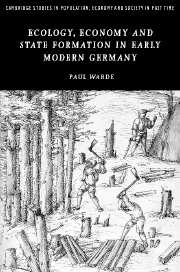Book contents
- Frontmatter
- Contents
- List of figures
- List of maps
- List of tables
- Acknowledgements
- Glossary
- List of abbreviations
- Introduction
- 1 The peasant dynamic
- 2 Power and property
- 3 The regulative drive
- 4 From clearance to crisis?
- 5 The two ecologies
- Conclusions
- Bibliography
- Index
- Cambridge Studies in Population, Economy and Society in Past Time
1 - The peasant dynamic
Published online by Cambridge University Press: 24 July 2009
- Frontmatter
- Contents
- List of figures
- List of maps
- List of tables
- Acknowledgements
- Glossary
- List of abbreviations
- Introduction
- 1 The peasant dynamic
- 2 Power and property
- 3 The regulative drive
- 4 From clearance to crisis?
- 5 The two ecologies
- Conclusions
- Bibliography
- Index
- Cambridge Studies in Population, Economy and Society in Past Time
Summary
Dynamism is not a concept commonly associated with the peasant. A ‘peasant’ after all is certainly not ‘modern’, and as modernity is almost defined by its dynamism, its relentless adaptation and its ingenuity, a peasant by definition can partake of none of its qualities without ceasing to be himself. Country air makes one slow and cautious, tied to the bounty of the soil and the grind of seasonal tasks, where one remains caught in the grip of voracious landlords. The ‘peasantry’ are often not so much defined by their particular qualities as by a ‘lack’: a lack of resources, flexibility, information, knowledge, certainty, markets, freedom or imagination, and consequently their only virtue can be to disappear on acquiring some or all of these. Their rebellions are understandable but pig-headed and backward-looking. Although Marx's comments on the ‘idiocy of rural life’ and the inability of the French peasantry to act as effective political agents are much maligned today, they retain the salient point that under no model of social change ever applied to Europe can the peasantry, as a peasantry, be a vehicle for sustained progress. Their historical mission is to cease to be, and as they generally chose not to accept this, then other exogenous forces must be the agents of their destruction.
In the lands of the middle Neckar and the Black Forest we can clearly identify a peasantry from at least the thirteenth century, that cannot reasonably be said to have disappeared until some decades into the nineteenth.
- Type
- Chapter
- Information
- Publisher: Cambridge University PressPrint publication year: 2006



